What You Should Know About Sugar and Your Hormone Problems
#30DaysOfSugar
How Sugar Affects Hormones
While sugar has been long associated with weight gain and health problems, have you wondered how a high sugar diet affects your hormones? Well, it turns out that sugar can reap a whole lot more havoc on your body than the usual skin problems and acne - causing issues from irregular periods to weird hair growth (especially for us ladies). So, here's how sugar causes hormonal imbalances + 4 steps to fix it!
While sugar has been long associated with weight gain and health problems, have you wondered how a high sugar diet affects your hormones ? Well, it turns out that sugar can reap a whole lot more havoc on your body than the usual skin problems and acne - causing issues from irregular periods to weird hair growth (especially for us ladies). So, here's how sugar causes hormonal imbalances + 4 steps to fix it!
As you may or may not know, keeping your bodies hormones balanced can be extremely complicated - there are so many different factors contributing unstable hormone levels, including your diet.
Hormones are your bodies chemical messengers, and they help control mostly every physiological process in your body.
Hormones have a seriously profound effect on not just physical health, but also your mental and emotional health.
Now you’ve probably been hearing lately a lot about how sugar is at the core of so many health issues.
But something we need to be monitoring is how sugar intake relates to hormones for both men and especially woman. Yeah, you heard that right.
Ladies (and men for the last 2) listen up: what do irregular periods, weird and unnatural hair growth, horrible mood swings, and acne all have in common?
They're all symptoms of a hormone imbalance, and if you suffer from one (or more) of them it could be a very important sign that your diet needs some attention - especially your SUGAR intake.
How sugar affected my hormones.
Before I dive deep into hormones and the nasty connection with sugar, I want to tell you a little story.
Hi! 👋 I’m Isabelle by the way - that’s me below (you can find my bio on the lil’sidebar), and I know very personally the connection between your diet, sugar and hormones.
I’ve experienced the effects.
Before I decided to create this post, I felt like sharing all of the details would be too personal for me to do, but right now, writing this, I think it’s necessary. Hard, but necessary.
I feel like if any of you guys can relate to my story, it might help you work out how to solve your own hormonal issues, and maybe even help you feel like sharing what you’re going through with your friends and family if you haven’t already.
If you can learn from my own experience, even a little, then it’s a win.
So, I’m like YES. I believe in sugar education mission so passionately, and I want to be able to connect and understand how important this is.
A journey through a hormonal imbalance caused by sugar...
A few years ago I was an avid fitness junkie, but I injured my ankle badly, so badly that in fact I still affected by it today as I write this.
In the beginning, I wasn’t allowed to move around at all - the pain was just too much. To add insult to injury, that following January is when I started studying for life changing exams.
You see, back then, I wasn’t the person I am today.
I was anxious, lacking confidence, unmindful in my life. I hadn’t discovered meditation and mind body connection yet.
I became full of stress (and even a kind of depression), but I couldn’t channel my feelings through activity, so I turned to food. I turned to sweets.
In an effort to comfort myself, I began relying on sugar as a daily pick-me-up. I had no clue that a sweet tooth is so horrible for us as women – specifically with our seriously fragile hormonal balance.
I’ll explain in more detail later, but hormones are the body’s chemical messengers; get them out-of-whack and you’re looking at triggering many nasty health conditions, and, perhaps more shockingly, psychological issues and imbalances.
As the physical toll of sugar starts to manifest in the body (weight gain, acne, fatigue, sleep disorders, irregular periods and so on) it then begins spiking and compounding the negative psychological effects sugar has on the neurons in our brains, causing depression, difficulty concentrating, irritability and moods swings.
Adrenal glands then respond by sending out a lot of cortisol (the stress hormone) and adrenaline. This begins the hormonal havoc.
So I started developing many of the ailments that sugar triggers: acne, hormone imbalances, irregular periods, insomnia, complete body inflammation, etc.
I can particularly remember this one Absolutely miserable night.
I was woken up at around 2 a.m. by this weird chest burn, and I couldn’t sleep. The burning was combined with this painful cramping in my ribs - it was literally the worst pain of the sort that I’ve ever experienced.
Looking back, it probably caused by hormones, but at the time I just couldn't figure out why I was going through this.
I couldn't stay in bed anymore - it was hurting too badly - so I got up and studied all night listening to All the Rage Back Home by Interpol blaring away on my headphones. Yep, I even remember the song I listened to - that’s how much that night sticks in my mind.
I sat there studying and felt so depressed and sad.
Writing this literally brings back that moment’s emotions. I felt as if I was defeated and my life would be made up of this poor health forever.
I couldn't see a way out, and all I saw was failure in my studies and self.
My family begged me to realize something was wrong - and I was tired of being at war with my body. I knew something was seriously wrong, and something told me that it was likely my diet.
I knuckled down, and went on a quest to change my life.
It was hard, and it all started with researching sugar and how to reduce it in my diet. The most difficult thing was trying to cut the sugar cravings - no matter how hard I searched I couldn’t find anything that could really help. Out of desperation, I just started sloughing through masses of information containing different ideas, methods, and lifestyle practices, and I began testing them on myself!
Eventually, yes, bingo! I stuck with it and was able to distill what actually, really, really worked into one effective and proven plan, and what I turned into my Cut The Sugar Program™, a program which combines practices like meditation, mindfulness, journaling and other diet changes - this is what really helped set me free from sugar once and for all.
This journey is actually why I'm writing this blog post today.
It lead me to want to create a place where people could get through experiences with care and support, and without all of the trial and error that I had to get past.
Maybe now you’ve heard my story, you’ll understand where I'm coming from. Why I’m writing this blog post, and why this topic is so important for me.
I want to crack down on the details of what causes sugar and hormone disasters like mine, to give you a clearer picture of what could be going on with your body, and hand you some tips on reversing the effects of sugar on your body.
Let’s get cracking...
What Specifically Are Hormones?
Hormones are the chemicals that are produced by glands in your endocrine system.
They travel through your bloodstream and to tissues and organs, delivering messages that most importantly tell the organs what to do and when to do it.
Also, hormones are extremely strong and powerful substances. Even at very low concentrations in the blood, they have a very crucial effects on target organs.
Hormones are important for regulating most major bodily processes, so a hormonal imbalance can affect a wide range of bodily functions. Hormones help to regulate:
• Metabolism and appetite
• Heart rate
• Sleep cycles
• Reproductive cycles and sexual function
• General growth and development
• Mood and stress levels
• Body temperature
• Men and women alike can be affected by imbalances in insulin, steroids, growth hormones, and adrenaline.
Women usually experience imbalances in estrogen and progesterone levels, while men usually will experience an imbalance in testosterone levels.
Hormones Are Like a Perfect Choir
What’s more, is that when a hormone is secreted, it will have a generally short-lived (a few seconds to thirty minutes) presence in your blood.
This arrival and duration of hormonal effects vary considerably. Some may produce a sudden effect, while another may take many hours or days before they even start to take effect.
The amount and concentration of hormones in your blood constantly varies.
In order to accommodate the constantly fluctuating human organism, hormones must be specifically and individually regulated. This requires a sort of perfect harmony as these large amounts of hormones interact with each other and other important substances in your body.
So, basically, hormones serve as messengers, controlling and coordinating activities throughout the body, including things like your metabolism, immune functions, menstrual cycle, and pretty much your overall reproductive health.
Because of this, there is a high chance that imbalanced hormones might be the underlying cause of many different health conditions.
Balance is important: Hormonal Imbalance….
An abnormal or overly large amount of secreted hormones can cause a hormonal imbalance or, kind of disruption. Because each hormone can cause its own effect, the result - the nature and intensity - of a hormonal imbalance is determined by the affected gland.
Certain periods during a person’s life are conducive to hormonal imbalances.
The body changes to adapt to its new state, which affects the hormonal system - also known as the endocrine system. A hormonal imbalance can also be caused by aging or disease.
Throughout different stages of life, from puberty to menopause, your hormones are in a state of natural flux. As for the many years in between, hormones may flux and be put out of whack, becoming imbalanced as a result.
Lifestyle factors may contribute to this, like high levels of stress, environmental influence, lack of sleep, insufficient exercise, and a poor diet full of unhealthy fats and sugars.
While all these factors super crucial are important to keep an eye on, looking at how much sugar you consume is key, especially for women’s hormones.
So What’s Up with Sugar...?
So you’ve probably already seen or heard recently a whole bunch of news and stories about how sugar is at the very core of so many health issues plaguing us today.
It’s also extremely likely that you have come to assume that processed sugar is simply a threat to your waistline. But in fact, it actually menaces us in another hidden and dangerous way - it attacks and undermines our hormones.
This is true for everyone, but is especially problematic for children in puberty and women. I’ll talk further about that shortly.
Diets full of excessive sugar, including all refined carbohydrates, can lead to consequential hormonal imbalance.
How Sugar affects your hormones
To kick off, sugar causes unbalanced blood sugar levels. Our crazy little bodies and brains naturally need glucose as fuel, so we do need sugar, just not refined sugar and not excessive amounts of natural sugar - more on this in a second though.
Your hormonal system, known as the endocrine system, perceives mismanaged blood sugar (as in you chugging down soda, sugary products, white bread, flour etc.) as a stressor.
Yep! You read that correctly - your body goes into a stressed state.
Your adrenals glands respond by sending out a cortisol (the stress hormone) and adrenaline. This begins the hormonal havoc on both men and women.
It also causes insulin resistance! Insulin is quit badly affected by diet.
Why? Because of the different signals going on in your body as a result of the glucose and resulting energy that is created from simple CARBS - your carbohydrate consumption!
When you start to build up an insulin resistance, your fat, liver cells and muscles, won’t respond properly (they start resisting or ignoring the signals insulin sends out to help you process all of the sugar you just ingested), causing a chain reaction and leaving excess glucose in your blood (this in fact, is what contributes to the development of diabetes).
And after time this insulin resistance may lead to scary conditions like obesity, high cholesterol, diabetes, heart disease, stroke and some serious female specific health issues!
How Hormonal Imbalance Caused by Sugar Leads to Serious Female Conditions
Women are more likely than men to be at risk of developing hormonal imbalances because they have different endocrine organs and cycles.
The insulin imbalance I was talking about particularly extends to female conditions. For example, polycystic ovary syndrome (PCOS).
For woman of reproductive age with PCOS, excessive high insulin levels cause the ovaries to make more androgen hormones such as testosterone. This can cause increased body hair, acne, fertility problems, depression, weight gain and difficulty losing weight, and infrequent or prolonged menstrual periods.
This just proves in further detail, what a high sugar diets effect on your hormones can do and really helps explain the blatant connection between sugar and many conditions such as PCOS.
Other than PCOS, other horrible signs of hormonal imbalance problems seen in woman can be both physical and emotional, like general irregular periods, severe PMS, severe menstrual cramping, skin issues, sleep disorder, tiredness and fatigue, concentration problems, irritability, irregular mood, depression, and so many more.
But It’s Not Just Sugar you need to worry about… It’s Also Sugar?! Whahh?
Surely you clearly see by now all the pointers imploring us to get control over our sugar consumption.
Although, it’s not just sugar you should be focusing on! Huh?!
If you thought this whole sugar thing just applied to that refined sugar in your Oreo… you might want to think again.
Foods with a high glycemic index, such as white flour, white potatoes and refined starch can also raise blood sugar, and on occasion, even more than table sugar.
In short, getting control over sugar, means getting control over all of your sugar consumption!
Sweeteners like white sugar, brown sugar, maple syrup, cane sugar, and high glycemic/white carbs like bread, pasta, potatoes are some of the foods you need to watch out for.
You may have been told that many alternative sweeteners out there - like agave - are ‘healthier’ forms of sweetening. Sorry, but sugar is sugar and it all breaks down during digestion and raises your blood pressure just the same.
Sugar Content in ‘Healthy’ Foods
Plus, while you may think you’re a healthy eater most of the time - minus your slice of occasional party cake and occasional frappe - sugar lurks literally everywhere and not just in the obvious places like chips, white bread, and cake.
From yogurts to pastas - and even to salads - this toxic and addictive ingredient sneaks into everyday foods that are supposed to be healthy, ruining any original nutrients and negatively impacting our bodies.
I won’t get fully into the details now (I have done a whole blog post on it over here The 'Healthy' Foods That Are Actually Packed With Sugar) BUT thanks to sneaky food companies, the actual sugar content in any given food is often shockingly higher than it seems, making it hard for us to estimate exactly how much sugar we’re consuming.
In my other blog post The 'Healthy' Foods That Are Actually Packed With Sugar, I'll tell you all about sugar's role in the food industry and why it's so prevalent, as well as how to identify and reduce the extra and hidden added sugar content in food and from your diet in general.
But for now here is the list of ‘sugars by another name’ that you should be aware of that those sneaky manufactures are hiding in their ingredient list.
The most popular alternative names for added sugars being used include:
• carob syrup
• corn syrup solids
• dextran
• ethyl maltol
• fruit juice
• maple syrup
• glucose solids
• sorghum syrup
• rice syrup
• cane sugar
• agave nectar
• barley malt
• date sugar
• blackstrap molasses
• brown sugar
• caramel
• dextrose
• molasses
• fructose
• honey
• fruit juice concentrate
• evaporated cane juice
• invert sugar
• malt syrup
• raw sugar
• sucrose
and the list goes on and on…. (though, you can find a full printable list in my Cut The Sugar Program).
Also, don’t forget the natural sugar in fruit and honey.
Fruit contains fructose, which, like refined sugar, metabolizes into fat in your liver - so eating large amounts may lead to some negative effects.
However, the thing to remember is that fruit metabolizes and reacts differently within your body than processed sugars and sweeteners, and tends to contain less sugar by volume, when compared with a sugary soda or candy bar.
Also, fruit fiber slows the absorption of sugar into your body, so you don't get a spike in blood sugar levels, the way you do when you eat something like a cinnamon roll, and other processed sugary foods, even honey.
This means eating fruit in small amounts daily is not only totally fine for those of us in good health, but is actually necessary and beneficial. You just need to moderate your daily portions, and don’t go crazy with your fruit consumption everyday! Learn more about fruit sugars in my post here.
But - and this is really important - there is an exception to this.
Those of us with high insulin levels, are diabetic, or pre-diabetic, need to be careful about how much fruit they eat, as consuming fructose contained in fruit can worsen their condition.
If you have any concerns about your health, or are over-weight, or know that you consume a lot of refined sugary, then I whole-heartedly suggest that you check your insulin level.
Anyone can find out their fasting insulin level by getting it measured, but I repeat you are quite likely to insulin resistance syndrome if you are: overweight, or have either high cholesterol, high blood pressure, diabetes, or have yeast infections. Get checked!
4 Steps to Healing Sugar Hormonal Imbalance in Your Body + do you need to quit sugar?!
Okay, so now you have a firm understanding of sugar, and how it affects you and your hormones, let’s find out how to get those hormones back in to perfect balance.
If you are suffering from a hormone imbalance, it’s incredibly important to address your sugar intake, and it’s highly likely that you’re also suffering from sugar cravings and dependency.
The key point to note on how to tackle this trifecta (hormone imbalance, sugar cravings, sugar dependency) is to approach the problem as a whole and with a strategy, a step-by-step plan. Let’s dive in.
These are four of my best quick tips for fixing your hormones that you can implement right away, that’ll help you cut sugar dependence quickly, crush cravings and help you to stop eating sugar with ease, so you can start healing sugar’s effects on you body today:
How to fix sugar caused hormonal imbalances: Step #1:
Stop consuming refined sugar, highly refined carb and sweeteners (like honey) on a daily basis. If you’re suffering from a severe sugar addiction, wean yourself gently off of daily sugar by consuming a bit of honey and fruit, to reduce sugar withdrawal symptoms.
Slowly decrease the amount you consume everyday, until you can eat only your daily servings of fruit and no honey.
Raw honey is the better option out of alternatives sweeteners when it comes to weaning yourself off added sugar, because it’s natural and full of minerals and vitamins.
How to fix sugar caused hormonal imbalances: Step #2:
You need to control how much sugar, including the simple carbs, you’re consuming, and be careful of hidden sources of added sugar. Also, moderate and monitor how much natural sugar you're eating and stay away from DRINKING any kind of drink with sugar - be it added sugar (like soda) or natural sugar (like juice).
The reason why you need to stay away from all sugary drinks (even those with natural sugar) is because those drinks (like for example fruit juices and smoothies) don’t contain much fiber - and remember what I said about consuming fructose with little-fiber?
Negative body impact.
Furthermore, make sure to read nutrition labels, ask waiters for sugar information and get informed about everything you’re eating - knowledge is power and health.
Take time to write a list of what you’re currently, normally eating and drinking, find out the natural sugar and added sugar, keep it noted, and cut out the food and meals with added sugar and simple carbs. Come up with healthy sugar free alternatives.
Of course, some may contain naturally occurring sugars, but make sure that they fit within the daily 25 grams of sugar you’re allowed.
Remember: these 25 grams of sugar of naturally occurring sugar shouldn’t be from any kind of sweetener (no honey). It should be coming from whole foods, like no-sugar added whole grains, fruit, veggie and dairy products.
How to fix sugar caused hormonal imbalances: Step #3:
Make sure you consume many fiber-rich foods, like vegetables.
This will help to detox your liver, creating more FGF21 hormone, which is a hormone that prevents sugar cravings, and will detox excess estrogen in the body.
Plus, if you eat fiber, this will help slow the absorption of the foods you eat, and keep you full for longer, curbing cravings. Whole foods like celery, carrots, and whole grain rice are all great options as they are full of natural fiber.
How to fix sugar caused hormonal imbalances: Step #4:
Eat healthy fiber, complex carbs (like beans, quinoa) and some kind of good fat (yes, there are good fats, and you need them, like: nuts and seeds) for breakfast within 80 minutes of waking up.
This will start your day right with a healthy balanced blood sugar.
Continue during the day to keep a healthy blood sugar balance by snacking on good and eating a lunch still full with fiber and good fats.
Despite some people’s beliefs, fats are actually good for you- GOOD FATS, like in eggs. Of course, fats can still be bad. I won’t go into the details right now, but fats like that in donuts, burgers, and bacon aren’t any good and negatively effect your body.
What I'm talking about here are healthy fats, which are fantastic for you, including olive oil, coconut oil, avocados, eggs, almonds, pumpkin seeds, etc.
Eating these good fats helps keep blood sugar levels under control, which helps keep you fuller longer - this helps you not feel as hungry as often, avoid cravings, and stave off energy crashes.
A great food with good fats to eat especially when you have a hormonal imbalance are flaxseeds. Flaxseeds are a significant source of phytoestrogens, which may help balance your body’s hormones, so snacking opting for flax is a super idea.
To get acquainted with the type of fats that you should be eating, check out this thorough guide on the 11 Best Healthy Fats for Your Body by Dr. Axe.
How Sugar Affects Hormones: That’s it for today, just remember you can do this!
There are more natural ways to help heal a hormonal imbalance, but a high sugar, refined carb and food intake is one of the NUMBER ONE contributors to insulin resistance and hormonal imbalance.
This means that these changes to cut added sugar out of your diet and add more healthy foods like good fats and fiber, will be the first way you can start healing and restoring your body.
This will not only work to improve your overall health, making you happier, healthier, but also put you more control of your life, because you will have a more balanced sugar lifestyle, without cravings ruling your life.
Once your body has its balance back you can become a little more flexible in your diet - balancing a healthy diet with enjoying sugar every once in a while, and you’ll start making healthy choices naturally, because you’ll have a happier, more balanced body, without messed up hormonal signals ruling your every decision.
The proof is in the pudding (well, not literally)!
Remember how I shared with you at the beginning of this blog post that I literally couldn’t have ice-cream in the house without giving in to eating some?
I would find every excuse to have sugar- to celebrate, to pick-me up if I was tired, to feel cozy watching a favorite film, if I felt nervous, upset… you get the picture.
I was in a constant cycle of sugar cravings and binges, cutting it out for a couple of days, and then binging again.
Well, that same me went on an experiment to see if I could go sugar-free up until my sister’s birthday, which would make it a full blistering 29 days!
Well, the verdicts in! I did it! 29 days’ sugar-free! Amazing!
I am living proof that you can not only crush that sugar addiction, restore vibrant health and balance in your body!
Ready to take the next step towards healthy hormones? Get my How To Heal Your Hormonal Imbalance Naturally Guide!
Use my eight powerful steps for hormone healing, combined with my 7 super effective anti-inflammatory diet strategies to incorporate into your daily life (heads up disclaimer: side effect- can make you feeling happier, more balanced, more energetic, glowing skin, sleep better, better digestion, and some weight-loss!)


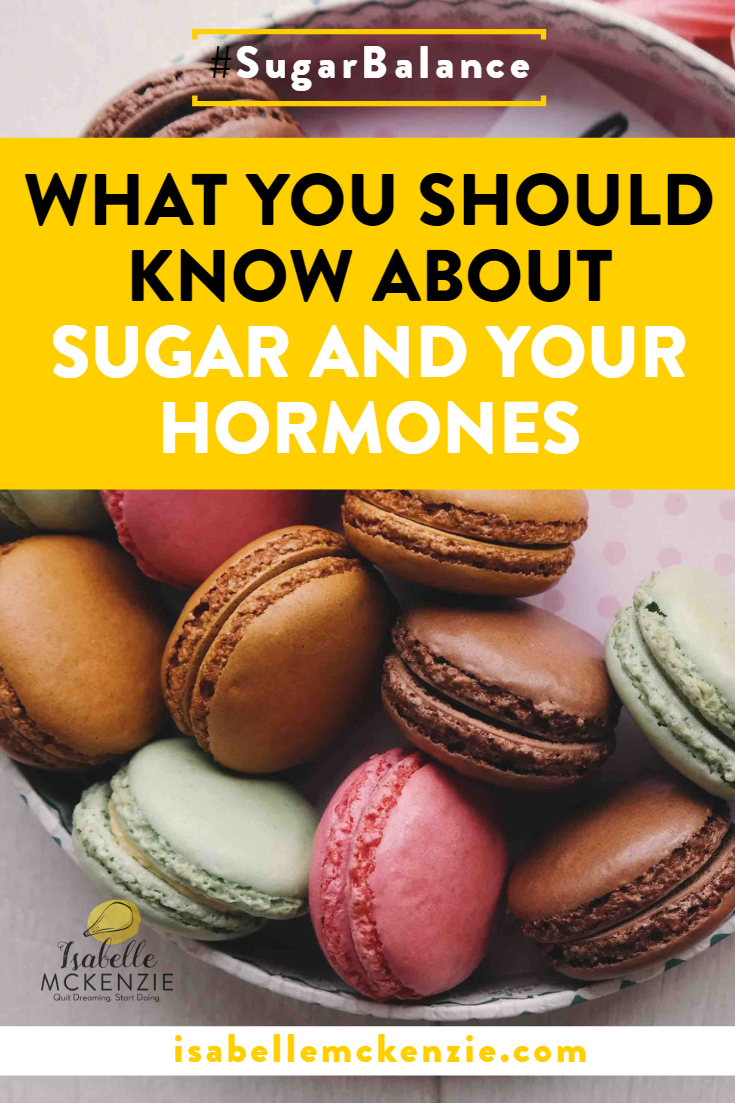
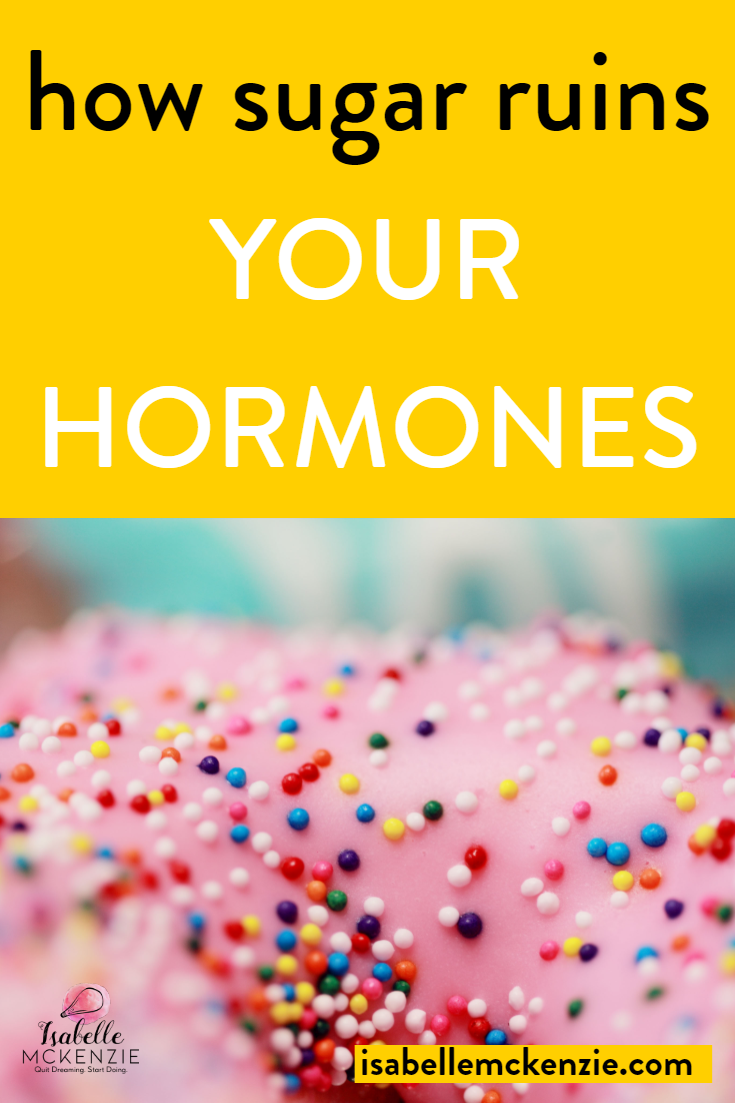
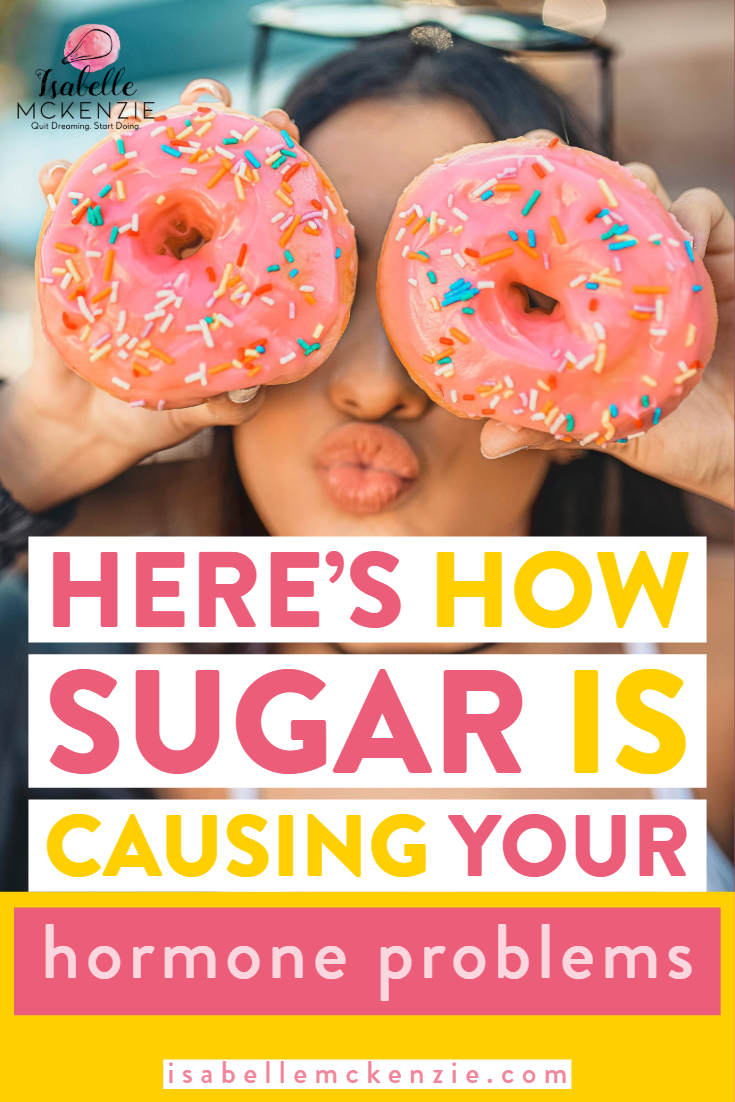
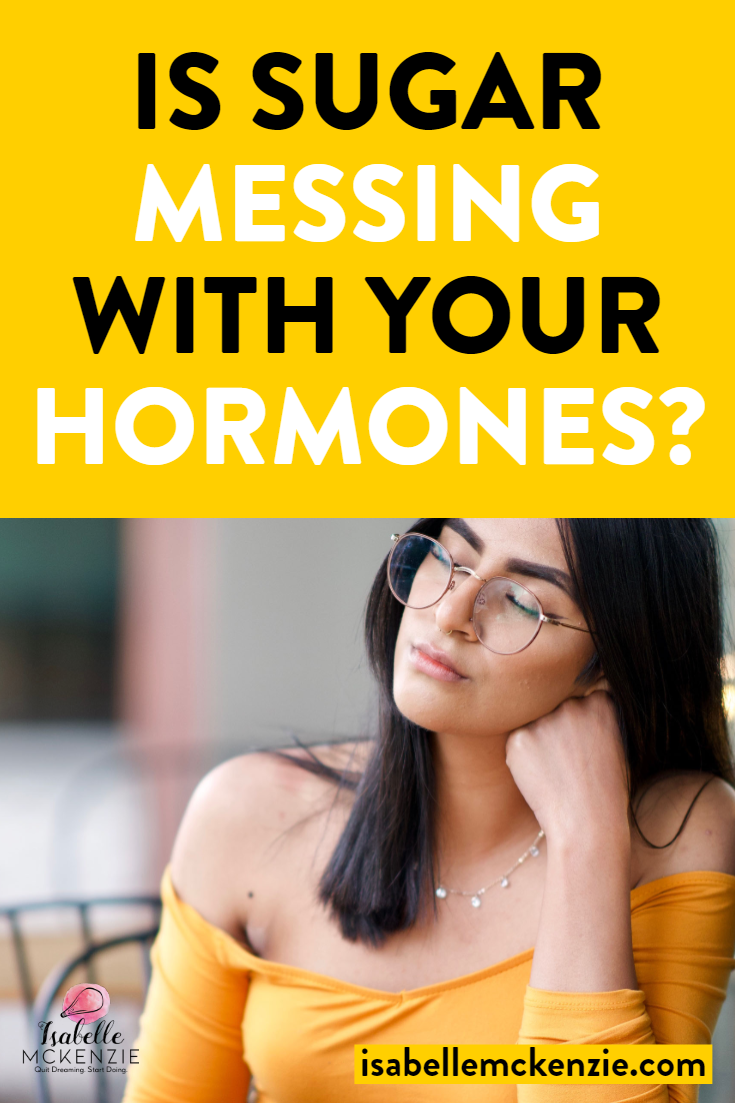
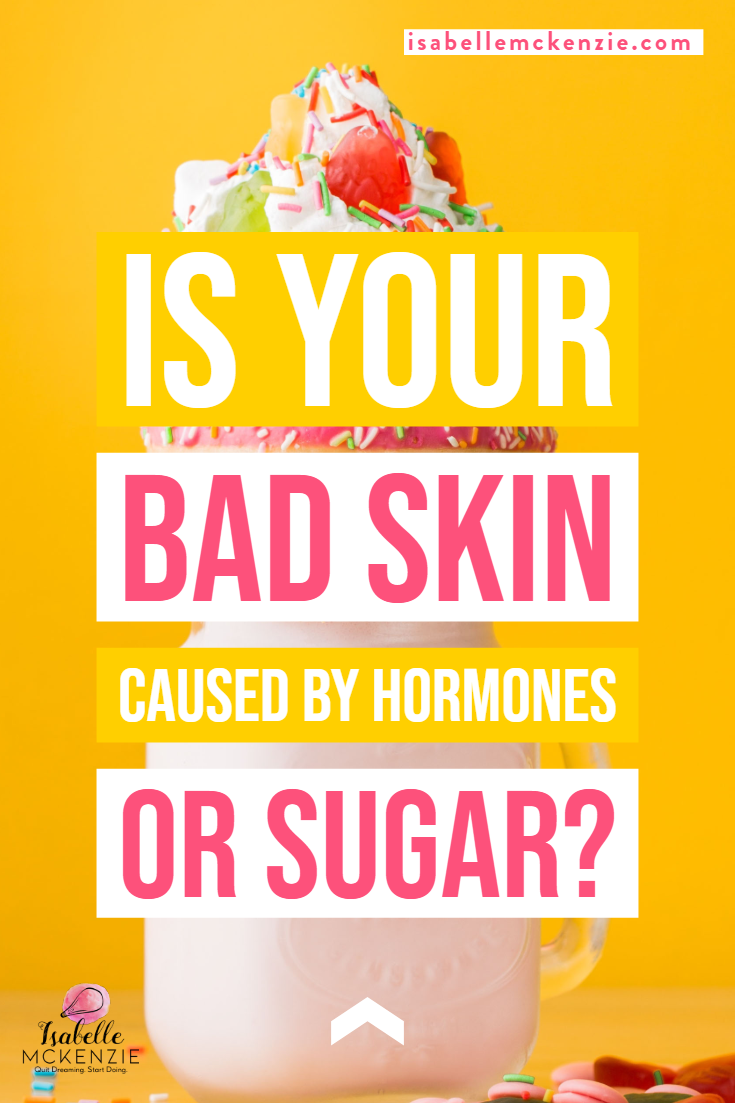
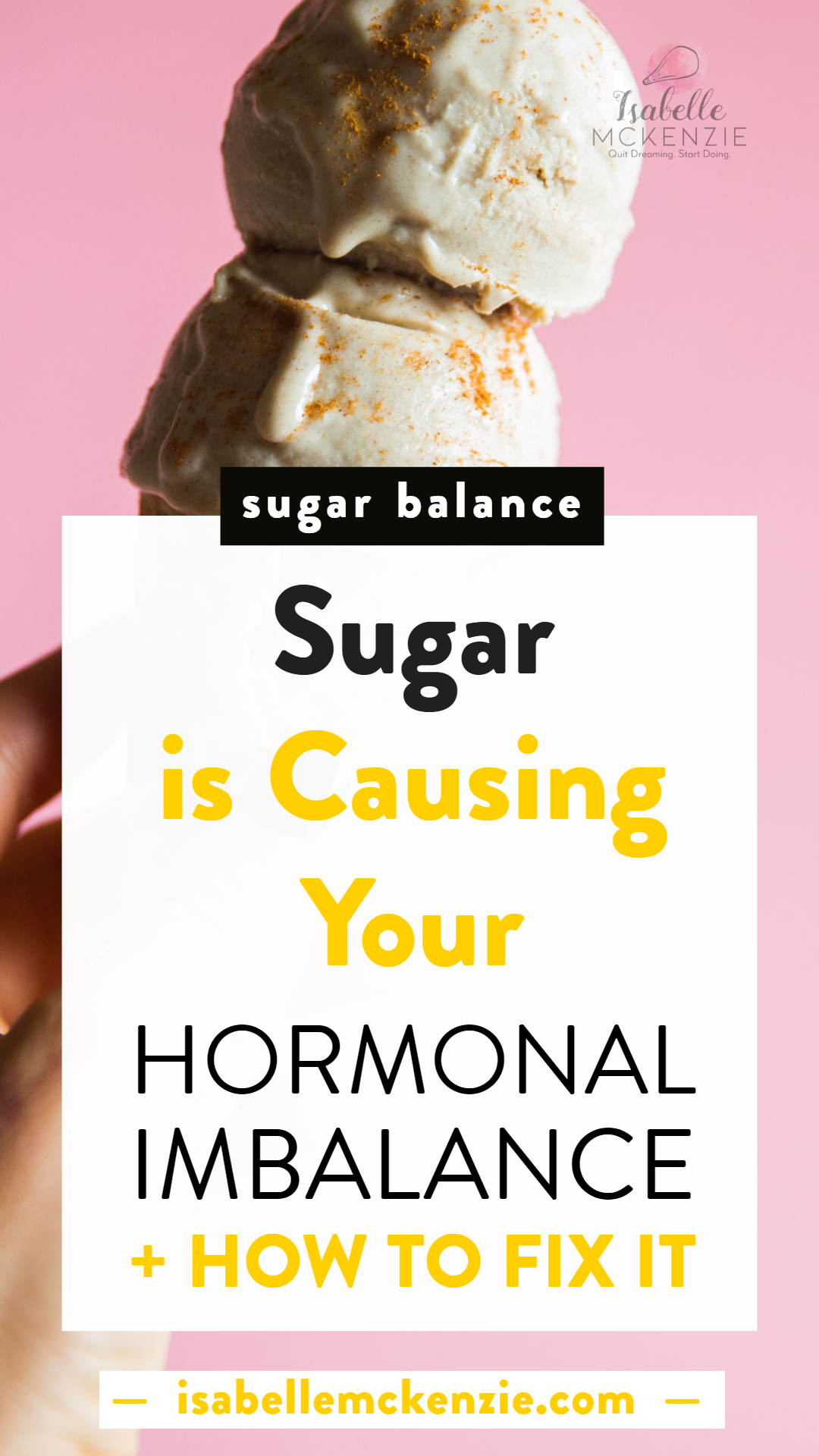
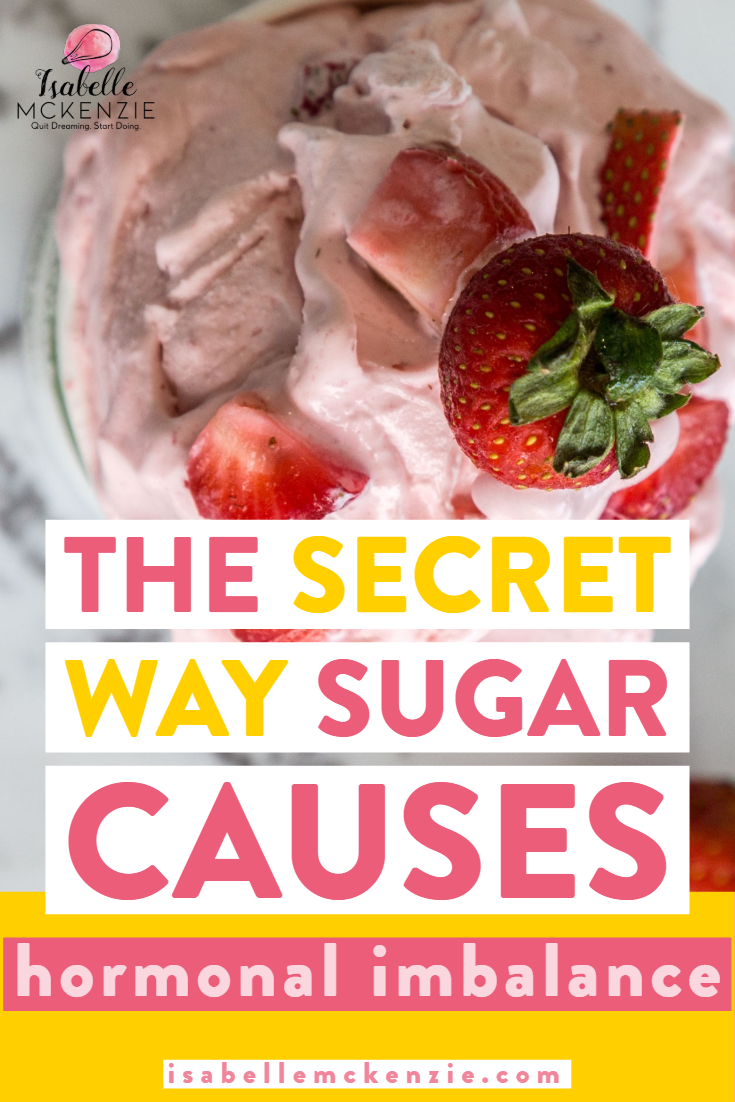
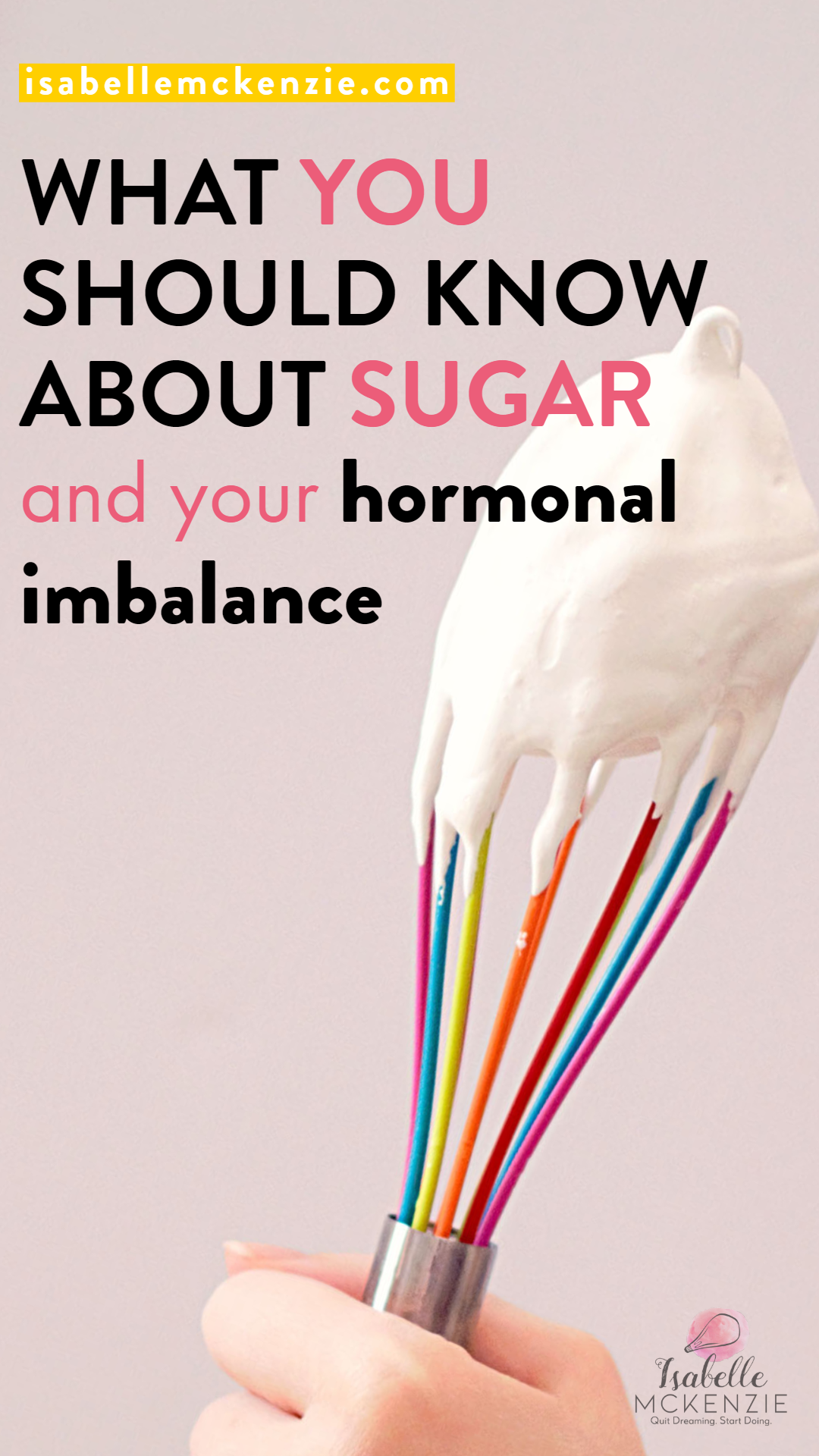
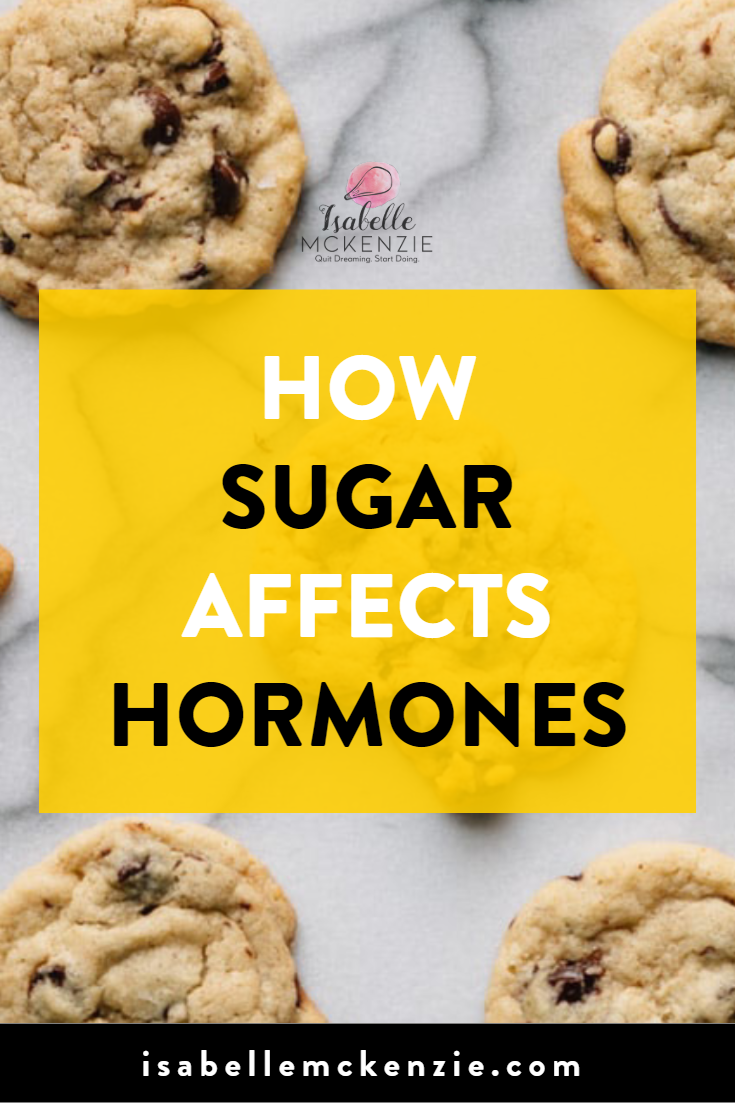











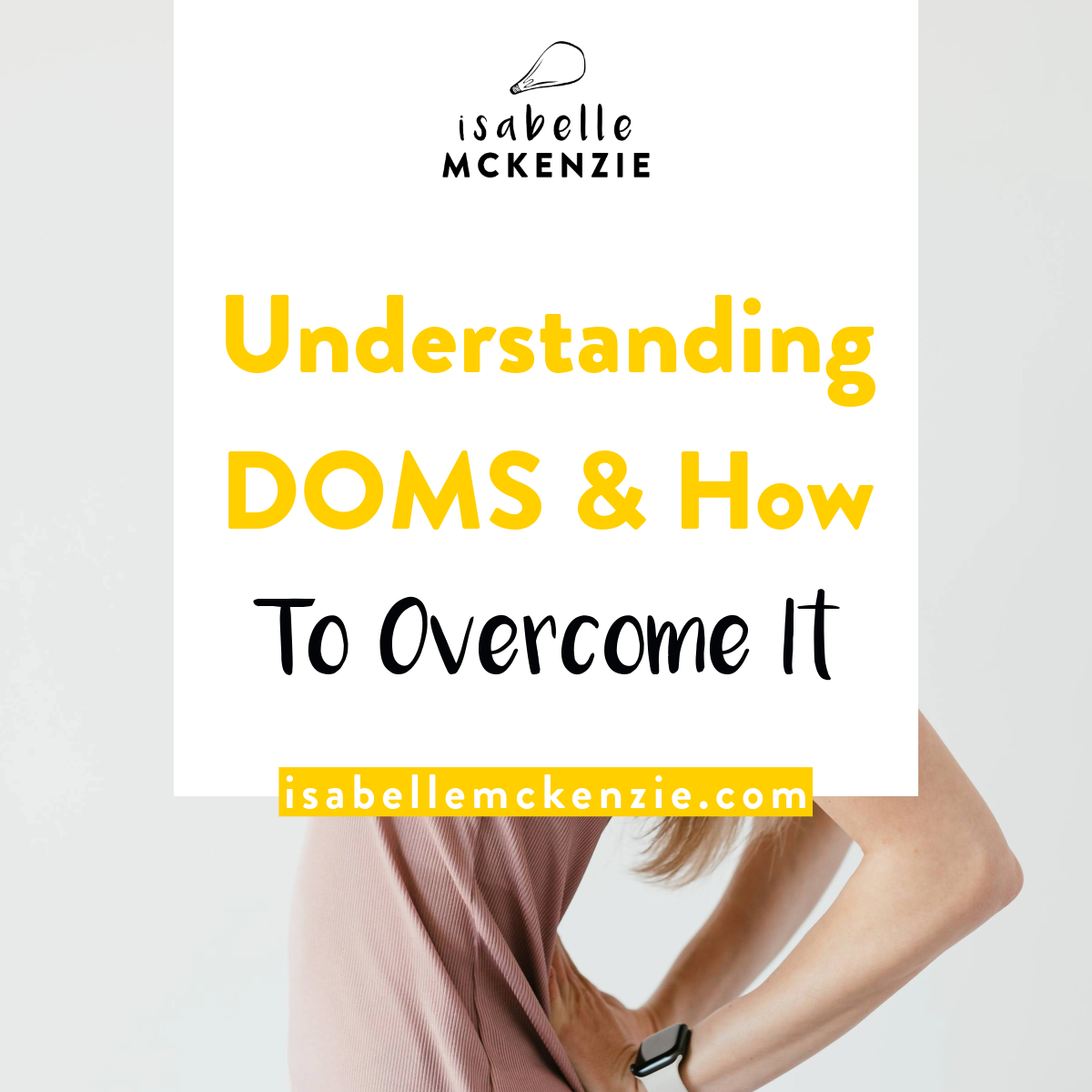







Here’s a Free Powerful Training for You!
Join us for the Ultimate Guide To Break Your Junk-Food & Sugar Addiction FREE in-depth, walk-through training to take you from sugar, junk-food addicted to craving free for GOOD!
SAVE MY SEAT